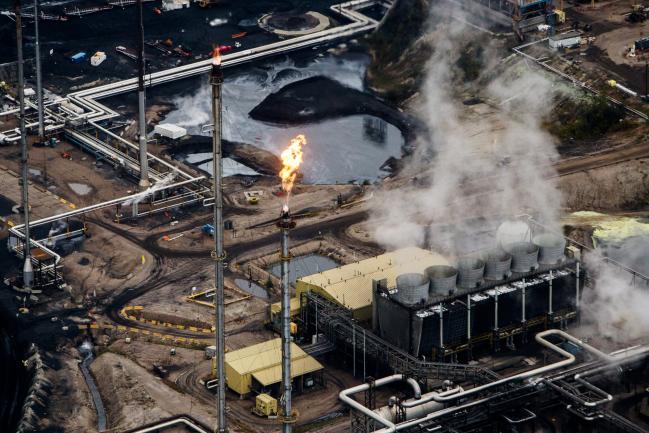(Bloomberg) -- Heavy Canadian crude surged to the strongest level in more than a year as rail shipments keep rising even as production was curtailed.
The discount of Western Canadian Select at Hardisty, Alberta, to West Texas Intermediate futures shrank $2.10 to $10.5 a barrel Monday, the narrowest since August 2017, data compiled by Bloomberg show. That’s from about $29 a barrel at the end of November, just before Alberta announced that producers would have to reduce output by 325,000 barrels a day in January to alleviate a glut caused by surging oil sands supply running into limited pipeline space.
The current discount is too narrow to cover the cost of transporting oil by rail to refineries on the U.S. Gulf Coast and wouldn’t even cover some shipments by pipeline. But train deliveries continued to creep upwards last month after oil companies signed long-term contracts earlier in the year, said Mike Walls, an analyst at Genscape Inc., which monitors Western Canadian terminals that account for about 70 percent of the region’s crude-by-rail shipments.
“We have seen continued ramping of rail through end of year 2018 and expect it to continue to rise gradually even with the production cuts,” he said in an email. “Rail is still needed to clear the market and help drain inventories to the desired level.”
About 281,000 barrels a day where shipped by rail the week of Dec. 28, up from a November average of about 263,000, Walls said. “These rail contracts are long-term term contracts and they are take or pay.”
Cenovus Energy Inc. announced in September that it would ship 100,000 barrels of crude a day by the middle of this year after signing three-year agreements with Canadian rail companies.
“What I am seeing is substantial increase in rail car loadings,” Tim Pickering, chief investment officer of Auspice Capital Advisors Ltd. in Calgary.“I don’t believe the cuts are too deep. Rather, I think the demand for deeply-discounted Canadian crude is substantial.”
(Updates price in second paragraph.)
